Fun facts about Chiang Mai
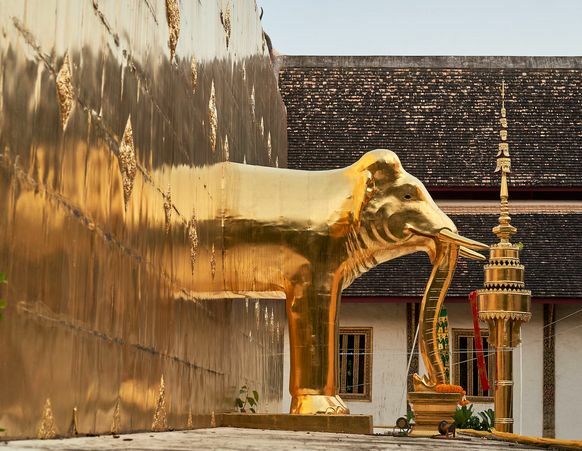
Located in the heart of Northern Thailand, surrounded by verdant forests and rolling mountains, Chiang Mai is a city steeped in history, culture, and stunning natural scenery. Founded over 700 years ago as the capital of the Lanna Kingdom, it has grown into a charming blend of ancient traditions and modern life, where history is alive on every corner and a sense of calm fills the air.
Packed within its ancient city walls and meandering streets lies a world of experiences waiting to be discovered. From its revered temples that stand as serene of spirituality to the bustling night markets buzzing with the energy of local commerce and craft, Chiang Mai offers a unique glimpse into the soul of Thailand. Its spirit is reflected through the colourful crafts of local artisans and the form of Lanna-style structures, which dot the city like stars in the sky.
As a peaceful retreat and a hub for adventure, Chiang Mai captivates those who walk its streets. It’s a place where you can find quiet in a temple, excitement in the jungle, or indulge in the famous flavours of Northern Thai dishes. This charming city is eager to share its stories, inviting visitors to learn and enjoy the many interesting facts that make Chiang Mai a truly special place to visit.
Now let’s dive into some of these fun facts that showcase the diversity and richness of this wonderful city.
Fun facts about Chiang Mai
The old city’s ancient walls
Spanning back over 700 years, Chiang Mai’s Old City is defined by the remnants of ancient walls and moats constructed during the late 13th century. Originally built for protection against invasions, the walls now serve as historical markers that discern the heart of Chiang Mai.
Four main gates still stand—Tha Phae Gate being the most famous, through which traders and ambassadors would pass Visitors often walk along the remnants of the walls, uncovering a tangible connection to the city’s past.
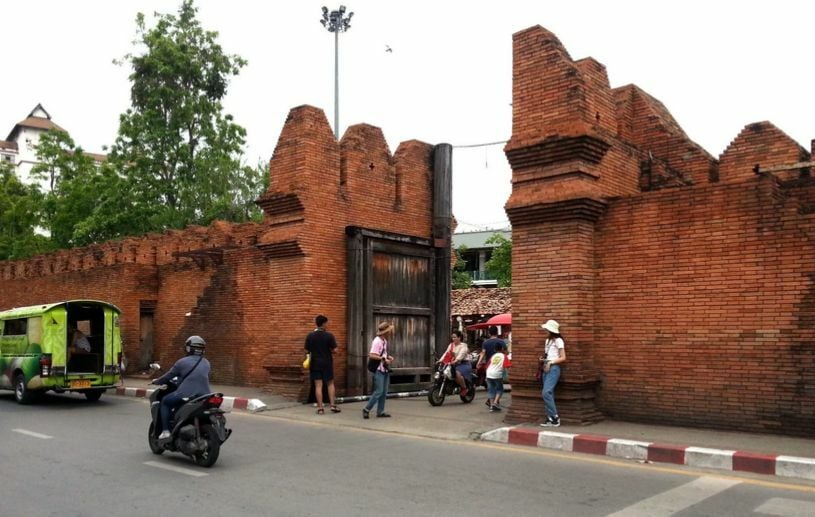
Wat Prathat Doi Suthep: The mountain temple
Perched on the Doi Suthep Mountain, Wat Prathat Doi Suthep is one of the most sacred temples in Northern Thailand. Legend holds that a relic of the Buddha was placed on the back of a white elephant which climbed up the mountain and stopped at the spot where the temple now stands.
To reach the temple, visitors can ascend the 306-step staircase, flanked by Naga (serpent) figures, offering an awe-inspiring entrance that leads to breathtaking views over the city and a deeper insight into Lanna culture.
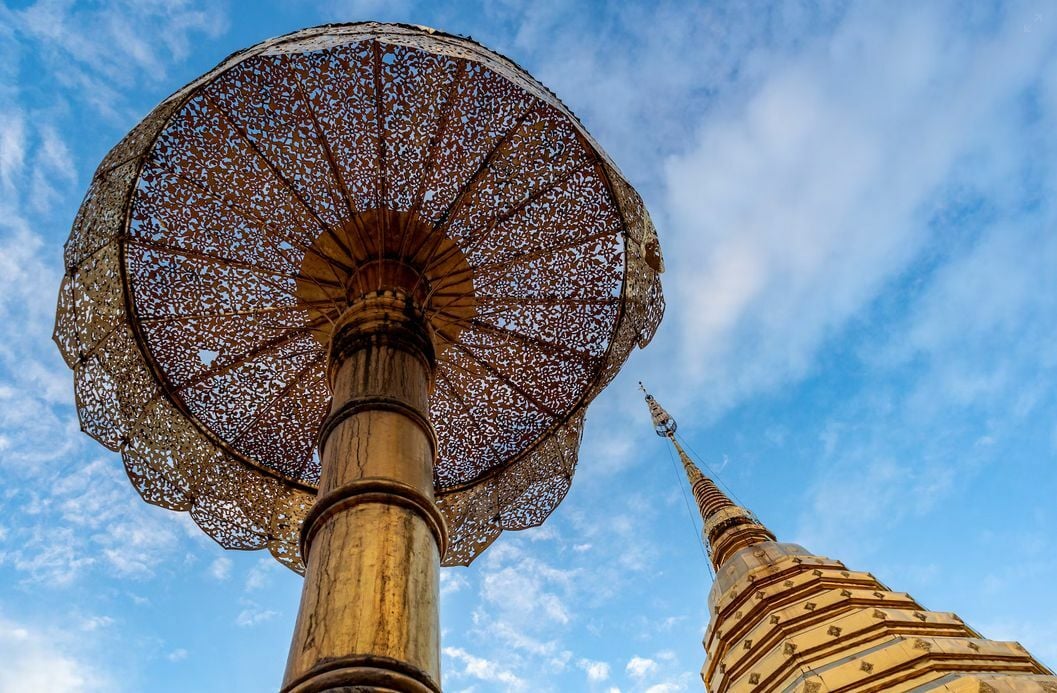
The night markets: A sensory delight
Chiang Mai is famous for its night markets, especially the weekend Walking Street markets on Saturday and Sunday evenings. The streets come alive with vendors selling everything from handcrafted goods to savoury local dishes and sweets.
At the Sunday market, which stretches across Rachadamnoen Road in the Old City, tourists and locals alike barter for goods under twinkling lights. It is a perfect place to pick up souvenirs like hill-tribe fabrics, lanterns, or hand-painted umbrellas.
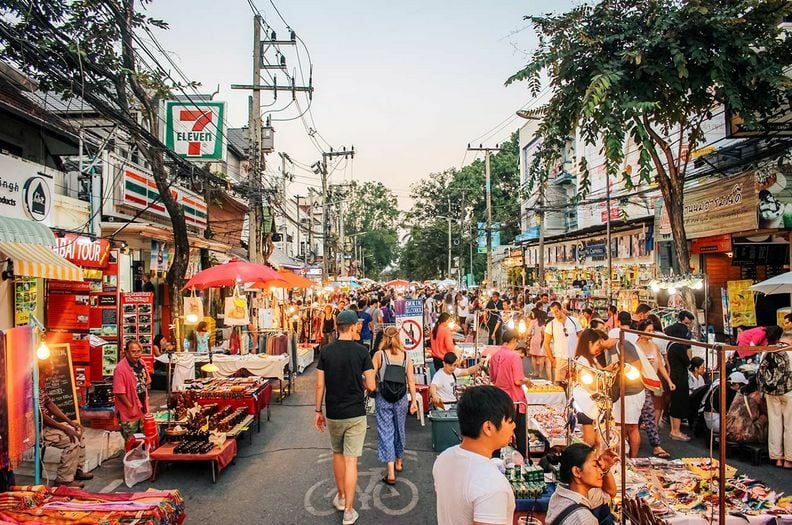
Yi Peng: The festival of lanterns
In the second lunar month of the Lanna calendar (usually November), Chiang Mai becomes extra magical during the Yi Peng Lantern Festival. The sky lights up as thousands of lanterns drift gracefully upward, creating an unforgettable spectacle.
This festival coincides with Loy Krathong, where people release small floats with candles onto rivers, representing the letting go of grudges and misfortunes. These twin festivals fill the city with light and are a symbol of hope and renewal.
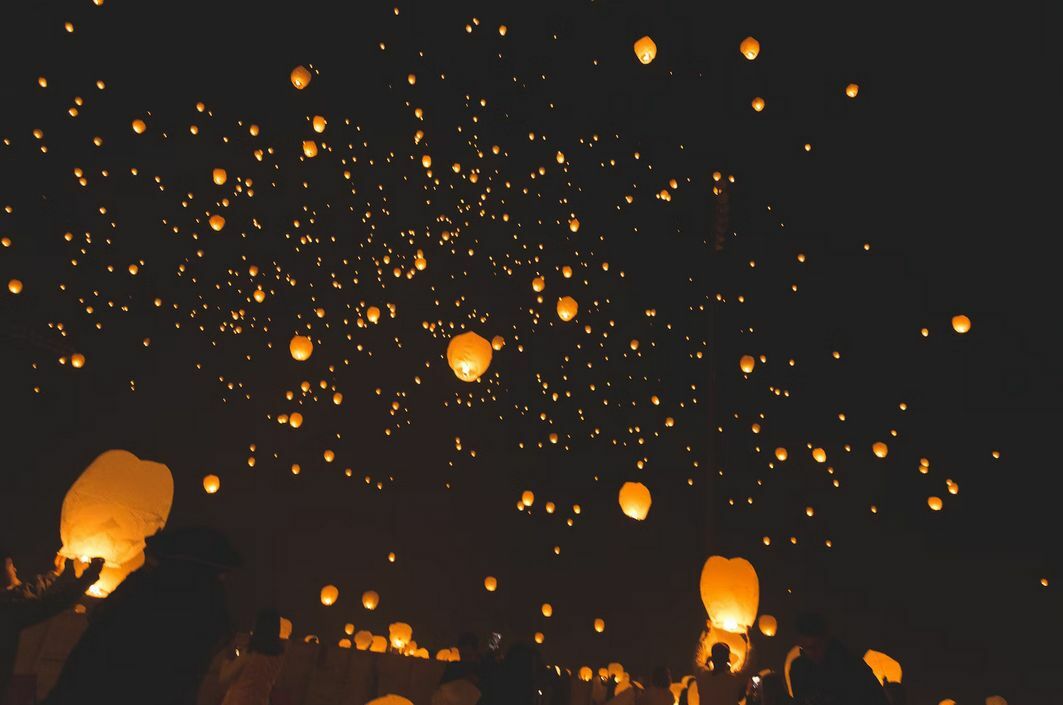
Ethical elephant encounters
Chiang Mai province is known for its ethical elephant sanctuaries, which offer an alternative to the traditional elephant camps. Visitors have the opportunity to observe and interact with these majestic creatures in a respectful and natural environment.
Initiatives like the Elephant Nature Park are dedicated to the rescue and rehabilitation of mistreated elephants throughout Thailand, providing a safe haven where these animals can thrive.
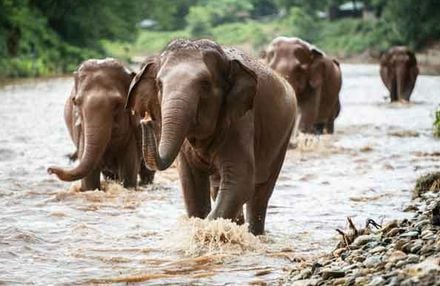
Chiang Mai’s cultural tapestries: The hill tribes
The mountains and hills surrounding Chiang Mai are home to various ethnic groups, often referred to as hill tribes. Among them are the Hmong, Karen, Lisu, Lahu, and Akha peoples, each with their own distinct languages, traditions, clothing, and crafts.
Responsible cultural tours offer insight into their way of life and customs, while also supporting their communities. The Hmong New Year celebration, with its vibrant costumes and elaborate silver jewellery, is a particularly colourful cultural experience that you should not miss.
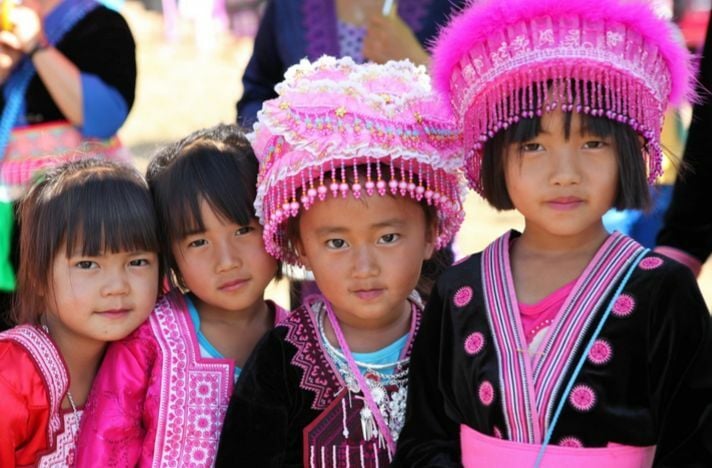
Coffee lover’s paradise
Thailand may historically be a tea-drinking nation, but Chiang Mai is at the forefront of a burgeoning coffee culture. The city is peppered with chic cafes, often highlighting locally sourced beans from the surrounding highlands.
The Arabica coffee plants thrive in the cooler mountainous regions, and local communities are increasingly involved in sustainable cultivation, contributing to the rich coffee culture in Chiang Mai.

Culinary heaven: Khao Soi
When in Chiang Mai, tasting the signature dish Khao Soi is a must. This Northern Thai delicacy is a creamy coconut curry noodle soup traditionally served with chicken or beef, garnished with shallots, lime, pickled mustard greens, and a crunchy element, usually deep-fried noodles. This dish exemplifies the fusion of Myanmar, Lanna, and Chinese flavours that have influenced the local cuisine.
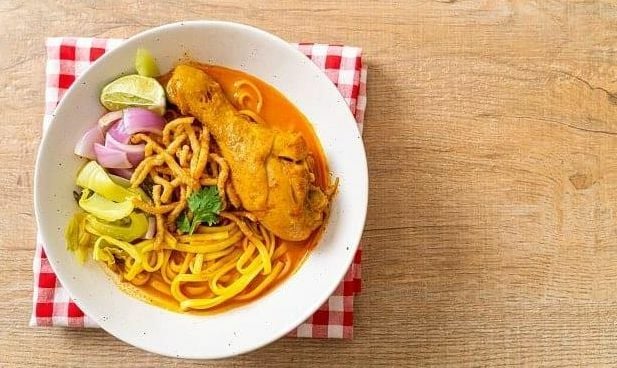
Artisanal handicrafts: Bo Sang umbrella village
The Bo Sang Umbrella Village is a testament to Chiang Mai’s artisanal heritage. Located around 9 kilometres from the city, the village specialises in the crafting of Sa Paper umbrellas and parasols, colourfully painted with intricate designs.
This ancient craft reflects the delicate artistry of the local people, and the village is animated during the annual Umbrella Festival, where artisans showcase their skills, and the streets are adorned with lanterns and umbrellas.
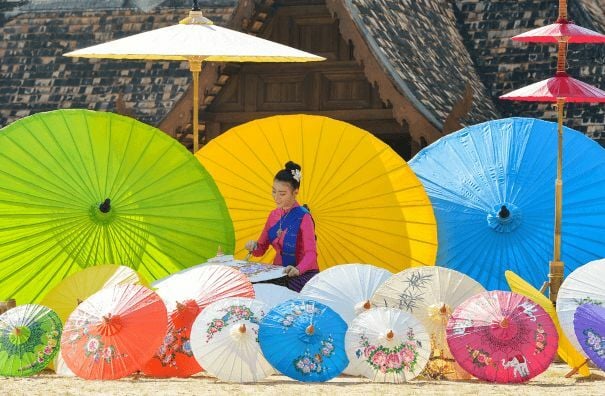
Chiang Mai’s living museums: Lanna folklife museum
To understand the history of the Lanna Kingdom and its people, visit the Lanna Folklife Museum. Housed in a former courthouse, the museum’s exhibits detail traditional Lanna life through artefacts, clothing, and multimedia presentations.
The collection illustrates the region’s unique cultural, religious, and artistic heritage, helping visitors gain an appreciation for the deep historical roots that permeate the city of Chiang Mai.
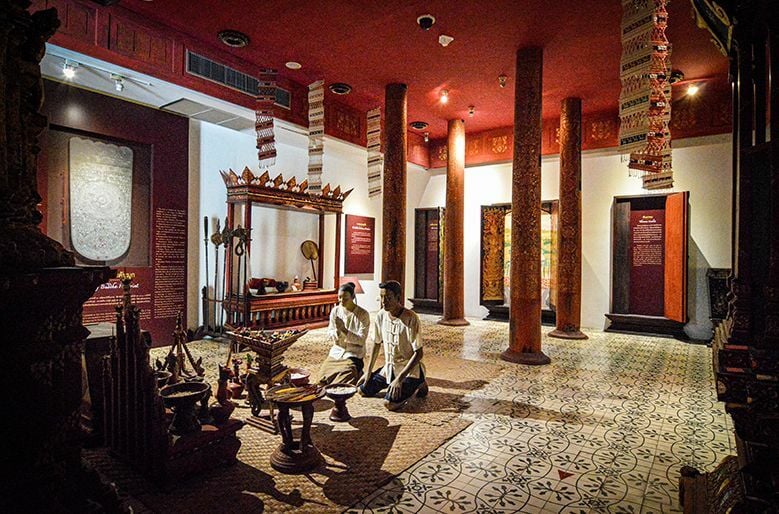
Chiang Mai is a city that captivates with its history, culture, and stunning scenery. With ancient walls, sacred temples, vibrant night markets, and incredible festivals, there is always something to discover. The city also offers ethical elephant encounters, artisanal handicrafts, and delicious local cuisine. Chiang Mai is a destination that promises a memorable and enriching experience for all who visit.
If you need a guide on how to get through Chiang Mai, this article will give you a quick breakdown of this city, or if you need a more comprehensive guide, check out our travel Chiang Mai article.
Latest Thailand News
Follow The Thaiger on Google News:


























